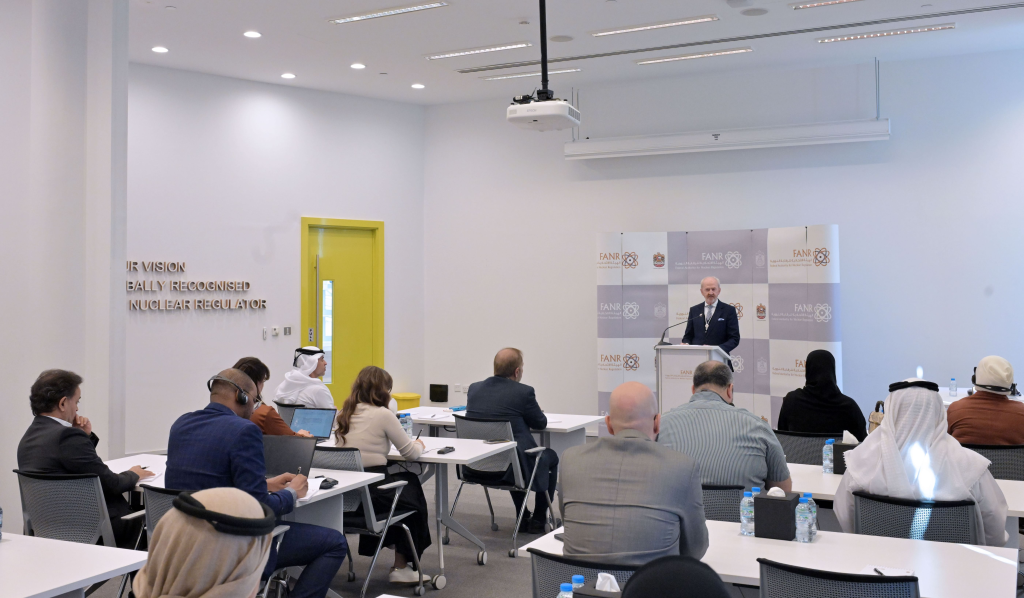The UAE’s Federal Authority for Nuclear Regulation (FANR) has announced plans to launch transformative projects in 2025, aligning with the national vision “We the UAE 2031” to make the country one of the safest in the world. These initiatives will focus on enhancing radiation safety, regulatory systems, and international cooperation.

According to WAM (see also our latest coverage here), speaking to the media in Abu Dhabi, Christer Viktorsson, FANR’s Director-General, shared that the authority aims to expand its global partnerships, offering expertise to countries new to nuclear energy and showcasing the UAE’s success with the four-unit Barakah Nuclear Power Plant. Viktorsson also revealed that FANR will host the 8th International Symposium on Radiological Protection in Abu Dhabi this October, bringing together nearly 600 experts to discuss advancements in radiation protection.
As the global nuclear energy landscape evolves, with pledges like COP28’s goal to triple nuclear energy by 2050, FANR intends to strengthen its regulatory framework. This includes introducing strategies focused on small modular reactors (SMRs) and integrating artificial intelligence (AI) into nuclear operations. The FANR Artificial Intelligence Strategy, developed with input from local and international partners, is set to roll out this year. FANR has already joined forces with the USA, Canada, and the UK on principles for AI use in nuclear activities.
A key milestone for FANR was the commercial operation of Unit 4 at the Barakah Nuclear Power Plant in September 2024, making all four units fully operational. The plant now supplies continuous electricity to the UAE’s national grid, positioning the country as a model for new nuclear nations. FANR conducted 47 safety inspections at Barakah last year, ensuring compliance with strict regulations.
In 2024, FANR also certified 267 reactor operators and senior reactor operators at Barakah and carried out 50 safeguards inspections, 96 import/export control inspections, and 58 security-related checks involving radioactive materials and transport. Its oversight extended to medical and non-medical facilities using radiation, with 210 inspections and over 1,090 licenses issued.
Emergency preparedness remains a priority, with FANR participating in 18 drills, including joint exercises with the Saudi Nuclear and Radiological Regulatory Commission. The UAE also joined 43 nations under the IAEA’s Response and Assistance Network, highlighting its readiness to support global nuclear emergencies.
As FANR continues to regulate the peaceful use of nuclear energy in the UAE, its efforts in safety, innovation, and global cooperation aim to set a benchmark for nations worldwide.

Leave a Reply